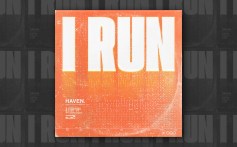How a MAGA Rapper Used AI to Create A Gospel Song That Climbed the Charts
Written by djfrosty on November 21, 2025
Trending on Billboard
Solomon Ray, a handsome young singer with a flawlessly trimmed beard, a friendly smile and a fedora tilted at just the right angle, is one of the world’s biggest gospel music stars this week. Four of his songs are on the Gospel Digital Song Sales chart, including No. 1 “Find Your Rest,” a soothing anthem with lyrics derived from Bible verses. He is also not human — not fully human, anyway.
The man behind Solomon’s curtain is Christopher Jermaine Townsend, a 34-year-old rapper otherwise known as Topher, whose fire-breathing MAGA videos like “Let’s Go Brandon” and “The Patriot” have given him enormous followings on YouTube, Instagram, TikTok and other social media. After reading recently about Xania Monet, the AI music star created by fellow Mississippi songwriter Telisha “Nikki” Jones, Townsend fired up the $3,500 computer system in his Philadelphia, Miss., basement and downloaded Suno, the AI music platform used by Jones. Within a few days, he and ChatGPT “co-wrote” the lyrics to “Find Your Rest,” Townsend used Suno to create the music and employed online tools to select the voice and master the song, then posted briefly about it as Topher.
Unlike most of the non-human, or partially human, artists who’ve recently hit the charts, Townsend proudly identifies as an AI collaborator. He also doesn’t care about anti-AI backlash — this is a rapper who, in March 2021, released “The Patriot,” with lyrics that included, “March around the Capitol, storm the city gates / putting pressure on their necks until the truth breaks.” He has a record of viewing haters and enemies as good publicity — and his strategy is working, as Ray’s songs have generated 738,000 on-demand audio streams in the U.S. in the past week, according to Luminate.
“[AI] reminds me of the resistance we saw with CGI,” Townsend tells Billboard. “This is CGV for me — computer-generated vocals. When CGI came out, [film director Steven] Spielberg and the industry were mad about ‘people [who] were going to lose their jobs.’ Now, no one cares about movie CGI; as a matter of fact, if you don’t have CGI, it probably won’t sell tickets.” Unlike just about every other AI-assisted artist on the charts, including Monet, Enlly Blue (rock), Breaking Rust (country) and Unbound Music (rock), none of whom have responded to multiple requests for comment, Townsend, reached on Instagram, agreed to two lengthy phone interviews.
How did you come up with the idea of creating an AI artist?
I’m from Mississippi and I’ve been doing music since I was 10 years old, writing, performing. I’ve had Billboard No. 1 chart success as Topher [on Rap Digital Song Sales] — as a real rapper, my vocals, everything. So I’m not coming in as an outsider, or a person without any talent. The only skill I would say I lacked was singing. I caught drift of AI songs with Telisha Jones. When I heard about her success, and her being from Mississippi, I’m super-proud.
Next thing I saw, Timbaland released his AI artist, and I was like, “Okay, this is not just a niche thing, this is a real thing, when you have labels paying multimillion dollars for AI artists and you have the household names adopting the technology.”
What was the process of writing and recording “Find Your Rest”?
About two days after I downloaded the app, my sister and I had a conversation. I could feel her heart was heavy over the phone and she teared up. I let her hear a snippet of what I was working on and she said she loved it. I told her it was AI, but it didn’t bother her. When I got off the phone, I said, “Maybe I can make a song that can uplift her spirit.” I started with Matthew 11:28: “Come to me, all you who are weary and burdened, and I will give you rest.” I wrote the hook, which is, “Don’t grow weary in well-doing / get those problems off your chest.” It developed into a full-blown song.
What did you do next?
I co-write with ChatGPT. I put in, “I want a gospel song, with a choir, here are the lyrics, here’s what I want the hook to be.” I changed this, changed that, and eventually, once I got the song how I wanted to flow the words, lyrically, I copied and pasted that into Suno.
Suno will auto-generate lyrics if you just give it a prompt, but I’ve never done that. Copyright reasons. If you want AI to generate [all the music], you can’t get any publishing. You can’t claim anything. And it can’t write like me. You’re not going to get “Find Your Rest” with a prompt. So I placed lyrics in there. It gives you two samples, and either you like it or you don’t. It took me a while.
Every time you create [on Suno Studio], it costs credits. It gets pretty expensive. I just regenerated every section until I got what I wanted. Then I used landr.com, a mixing and mastering program online. Once the song’s done, I go to Artlist.io to generate Solomon Ray’s look. From there I can generate images, sitting on a truck or walking or whatever.
Why is this a more fruitful songwriting process than just writing your own song?
It helps me eliminate the ideas that I think won’t work. It’s a tool that speeds up the process. If I was to reach out to somebody, and they had to sing this or produce that, it would take forever to get to where I’m trying to get to.
How long did it take you to get from idea to actual song that you posted online?
To give a recent example, my Christmas EP [Solomon Ray’s A Soulful Christmas], those four songs, I started working on it in an evening, and by the next night, I had completed everything — mastered all the songs, created the graphics for the album and uploaded it to Distrokid.
How did you come up with Solomon Ray?
I’m a Christian, so I’ve got a gospel background. My dad’s a blues guitarist and singer. I never dove into it because my capacity to sing wasn’t competitive enough to make a difference, so I chose the rapping route. Solomon Ray allows me to draw out my passions and my stories. I asked ChatGPT, “I need to come up with a good Southern name that’s biblically sound, that when you hear it, it’s unmistakably a Southern gentleman.” It spit out a list of 20-30 names and Solomon Ray was the one I landed on. It’s King Solomon, so it’s like wisdom, wealth. Ray was the sunshine element. I miss the days when men got a chance to dress fashionably, with the peacoats, the hats, the fedoras — that went into building his look. I didn’t want him to sound like somebody that’s been chain-smoking. When I landed on that vocal texture, I decided to keep it.
How much marketing did you do to draw attention to the song?
Although I have millions of followers, I didn’t want to leverage that. People might not like Solomon Ray simply because he’s associated with me. I wanted Solomon Ray to be able to stand on his own. I only posted one video to my TikTok and one video to my Instagram.
As Topher, you’re purely independent, right?
Right. When I was younger, I tried to go through the traditional route, the open mics, the talent shows, trying to pitch it that way. Had no success. I stuck to just being organic. It worked. My songs took off from there. Even though I was doing really well, No. 1 at Billboard, I never got a call from anyone.
It sounds like what you’re saying is the music business is closed to you as an openly conservative rapper and musician.
That’s exactly what I’m saying. But that’s fine. That’s the industry.
But if you identify as conservative, that gives you access to a whole other promotional network, of conservative radio stations, cable channels and podcasts, right?
It’s just that they’re still willing to bring me on and play me. The conservative stations and outlets still play liberal artists. But what you see is the liberal outlets are not going to play many conservative artists.
Solomon Ray’s music is apolitical, but how much does it concern you that potential listeners might say, “This is the MAGA guy, I don’t want to support him”?
To a certain extent. Somebody might have a preconceived bias towards the music simply because [of] what they think about me. That can be [true] for any artist out there. But I believe the art is going to supersede a lot of that noise.
If a label approached you and said, “We like this activity around Solomon Ray,” would you consider signing, or do you want to remain indie?
I’m open to signing. Since I’ve already had my success as Topher, I don’t have this pride in saying, “I did it myself,” because I’ve already done it. If labels come now, it’s like, “Okay, how can we grow this, how can we expand this?” There’s a reason why you have publishing, and I’ve really never been in movies with my music, because there are certain things you don’t have access to as an independent. I’m interested in seeing how far to take him.
You refer to Solomon in the third person. It’s like you have a secret identity.
[Laughs] My wife is sometimes like, “I want you to know that Solomon’s not real.” I’m like, “I know that!” It’s like any other character in a movie.

 State Champ Radio
State Champ Radio 








